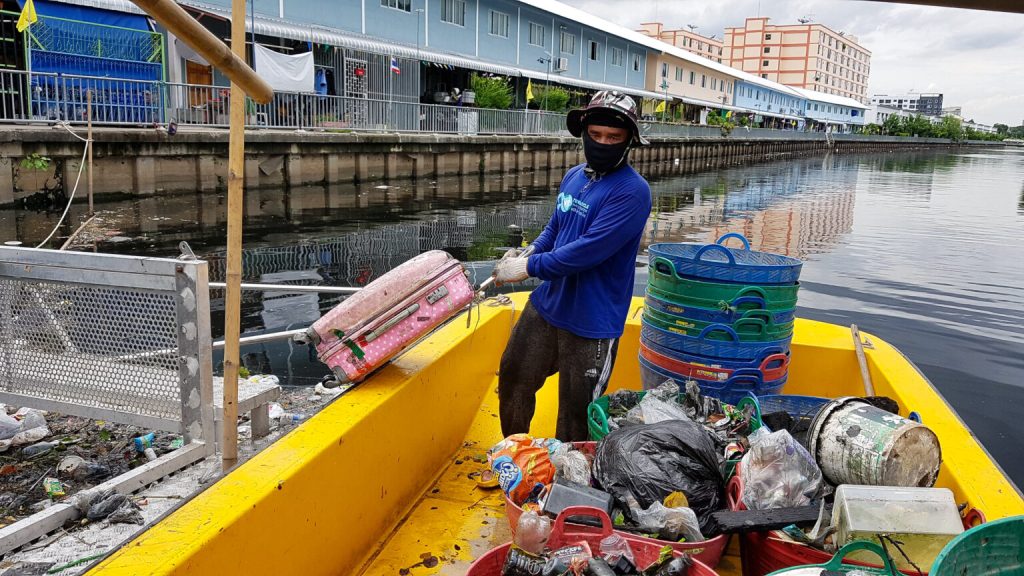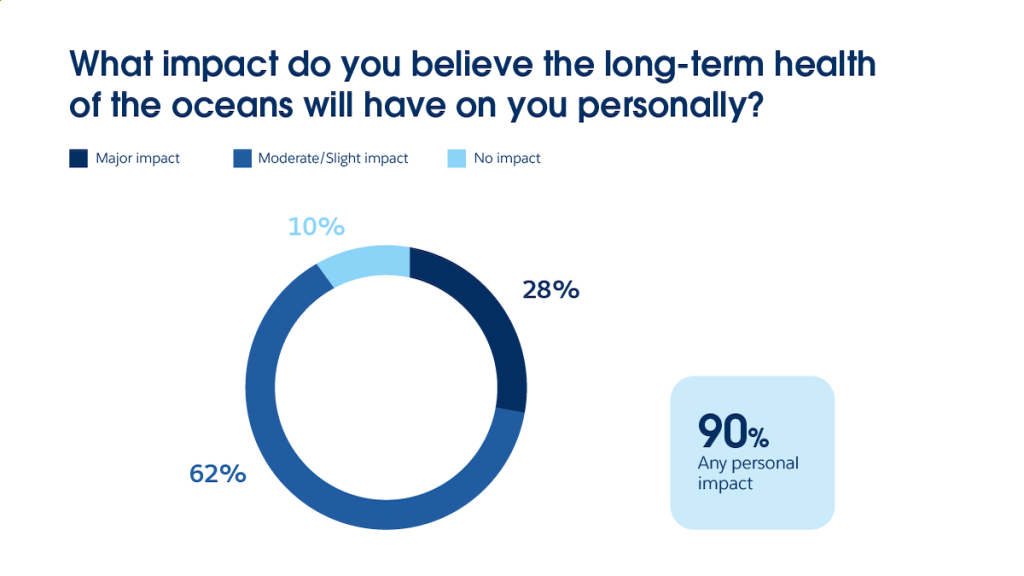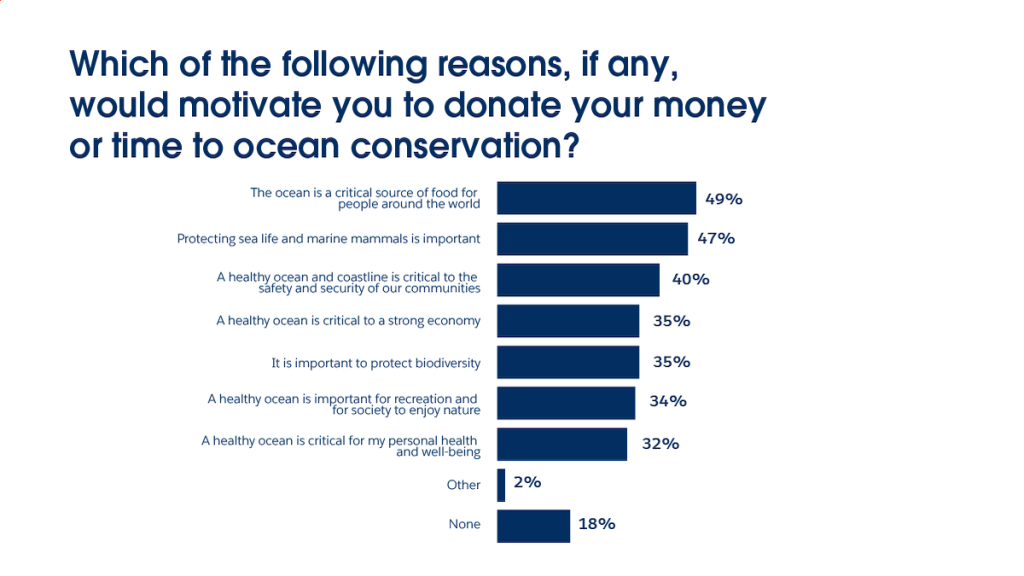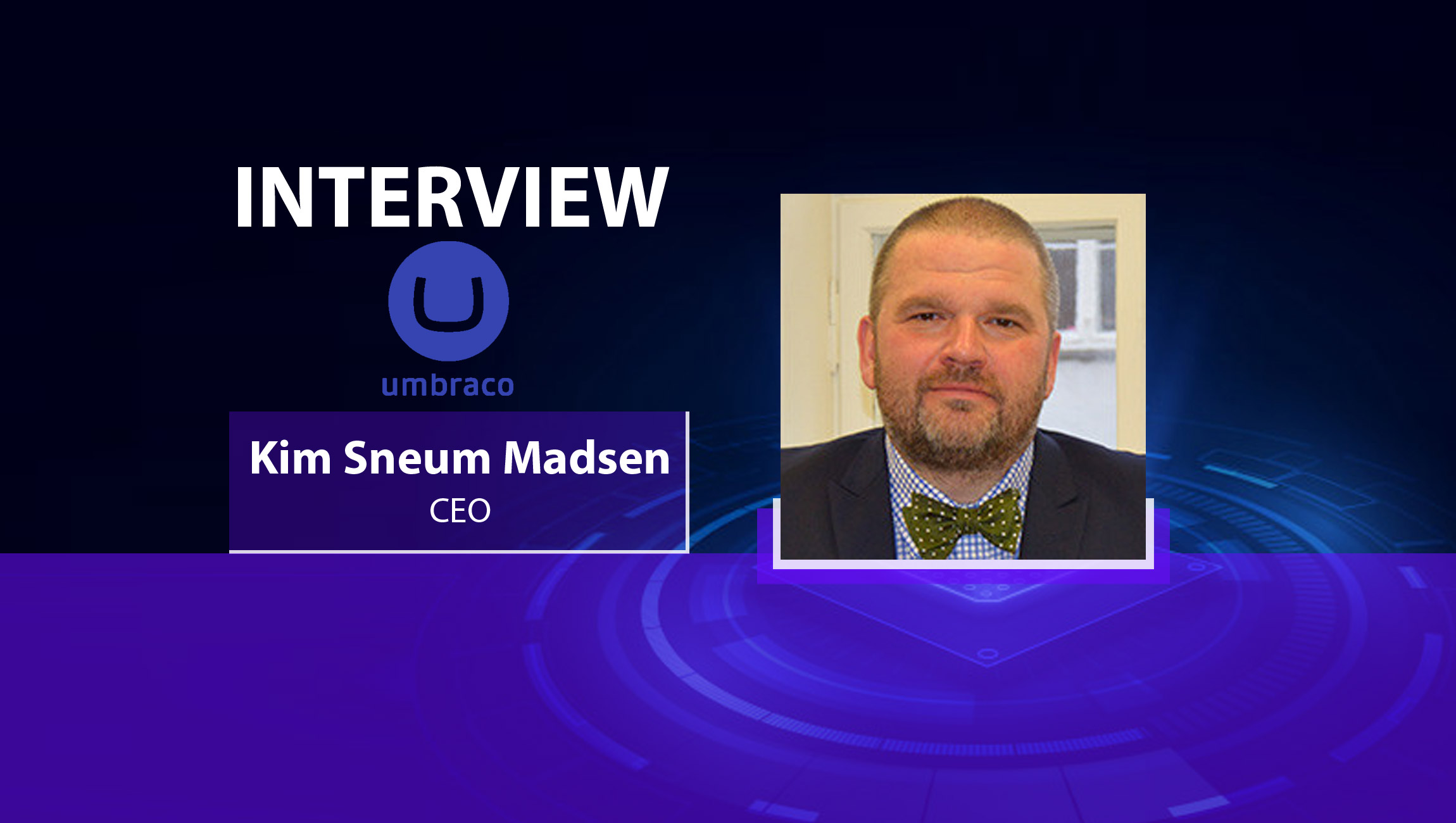-
Salesforce appoints first-ever Director of Ocean Sustainability to expand its global impact on behalf of oceans.
-
New data tool from The Benioff Ocean Initiative in partnership with Tableau showcases how much and what types of plastic are being captured in the world’s waterways, and how this data can be used for change.
-
Salesforce research reveals that people care deeply about the health of oceans, with 9 in 10 believing long-term ocean health will impact their lives.
Oceans are one of the earth’s greatest defenses against climate change, but they are also one of its greatest victims. Oceans are, in fact, the largest ecosystem on Earth — at least half of the world’s oxygen is produced there — and their vastness inspires and captivates humankind. To protect this precious resource, help is needed from businesses, individuals and governments.
Salesforce, a company that considers oceans as one of its key stakeholders, is celebrating World Oceans Day by sharing plans to expand its global impact on ocean ecosystem restoration efforts. Restoring ecosystems like oceans and forests play a critical role in mitigating climate change.
Marketing Technology News: MarTech Interview with David Greenberg, CMO at Act-On
Salesforce expands global advocacy to champion oceans
Last week, Salesforce CEO and Co-Founder Marc Benioff signed the “Ocean Super Year Declaration” letter from the World Economic Forum (WEF) and Friends of Ocean Action, which highlights the urgency for global action.
In addition, Salesforce has joined the UN Decade on Ecosystem Restoration effort, a global rallying cry to heal the planet, and Suzanne DiBianca, Chief Impact Officer and EVP of Corporate Relations, joined its board as an advisor.
Salesforce hires director of ocean sustainability

As part of the company’s work to support nature-based solutions to climate challenges, Salesforce has hired an executive to focus on ocean sustainability — Dr. Whitney Johnston. Prior to Salesforce, Dr. Johnston served as Ocean Policy Adviser to U.S. Congressman Sam Farr. She holds a Ph.D. in Chemical Oceanography from MIT and Woods Hole Oceanographic Institution, and is a former Knauss Marine Policy Fellow with the NOAA Sea Grant Program.
In her new role, Dr. Johnston will focus on leveraging the full power of Salesforce for the benefit of oceans through policy, technology, investing, philanthropy and stakeholder engagement.
“Ocean health shows up in everyone’s lives, from the food we eat to the oxygen we breathe. While unhealthy oceans spell trouble for people’s pocketbooks, dinner plates, and peace of mind, working to protect our oceans presents an enormous opportunity to address today’s biggest crises — inequality, biodiversity and climate change. That’s why I’m so proud to lead Salesforce’s new oceans sustainability program — to harness the full power of Salesforce on behalf of our oceans,” said Dr. Johnston.
Ocean health shows up in everyone’s lives, from the food we eat to the oxygen we breathe.
DR. WHITNEY JOHNSTON, DIRECTOR, OCEANS SUSTAINABILITY, SALESFORCE
“Now is the time we must all step up for our ocean,” said Dr. Douglas McCauley. Professor of Marine Science, UC Santa Barbara Director, Benioff Ocean Initiative. “Business has a crucial role to play. That is why it is so exciting to see Salesforce create this new program on ocean sustainability. I know of no other big tech company with a dedicated ocean sustainability office. This is precisely the kind of ocean leadership we need to see more of from the business world.”
Marketing Technology News: Ed Pascua Joins SecurEnds
Rivers as a lifeline to oceans

Also today, a new data tool from The Benioff Ocean Initiative — in partnership with Tableau — was released. The tool showcases how much plastic is currently being prevented from entering the ocean by capture technologies operating in rivers around the world, and how this data can be used for change.
Rivers, one of the earth’s key ecosystems, transport water and nutrients throughout the world and into oceans. Estimates suggest that up to 12.7 million metric tons of plastic enter the ocean from land each year — much of that through rivers.
The Benioff Ocean Initiative’s Clean Currents Coalition is addressing this complex issue of plastic pollution while working with local communities in nine countries to promote systemic change. Through this first-of-its-kind, publicly-accessible interactive data tool, the initiative aims to influence policy, infrastructure, and behavior changes in order to help save the ocean.
New Salesforce research reveals people care deeply about the health of oceans

As part of its efforts to generate change, Salesforce also sponsored research to better understand consumer perceptions around oceans. Conducted by The Harris Poll from June 1-3, 2021 among more than 2,000 U.S. adults 18+, the data shows that:
- Ocean health is vital: 9 in 10 Americans (90%) believe the long-term health of the oceans will have an impact on them personally. This is even more pronounced for younger Americans, with about a third (18-34 year olds, 33%; 35-44 year olds, 32%) saying the long-term health of the oceans will have a major impact on them personally.
- Plastic pollution in the ocean is the biggest concern to the public: When asked to select the biggest threat to the oceans, 29% of respondents selected plastic pollution (vs. 44% in 2019), while 25% selected climate change (vs. 24% in 2019). Engagement on either, or both, is critical to advancing solutions.
- We all share responsibility for protecting ocean health. The vast majority of Americans say various parties bear some level of responsibility for protecting ocean health, with more than 80% of U.S. adults saying government (91%), non-profits (84%), scientists (82%), fishermen (88%), business (89%), and everyday citizens (91%) each hold at least some responsibility.
- Two key motivators drive ocean donations: Topping the list of reasons that would motivate Americans to donate their time or money to ocean conservation, close to half said: “the ocean is a critical source of food for people around the world” (49%) and “Protecting sea life and marine mammals is important” (47%).

Investing in the planet’s ecosystems
Salesforce is proud to stand fully behind many vital initiatives to protect the planet, including the protection and revitalization of oceans.
The company is focused on the global journey to net zero emissions, and mobilizing the global effort to see an additional trillion trees on Earth. As part of Salesforce’s broader effort around restoring, conserving and growing 100 million trees, and now restoring the health of oceans, the company has planted and conserved millions of mangroves, a critically important type of coastal forest, in local communities in Kenya, Myanmar, and Madagascar.
In this critical decade for climate action, Salesforce believes all businesses, people, and the government must step up to mitigate the worst effects of climate change. Learn more about Salesforce’s sustainability efforts.
Marketing Technology News: MarTech Interview with Isobel Peck, Chief Marketing Officer at Informa Connect












Comments are closed.